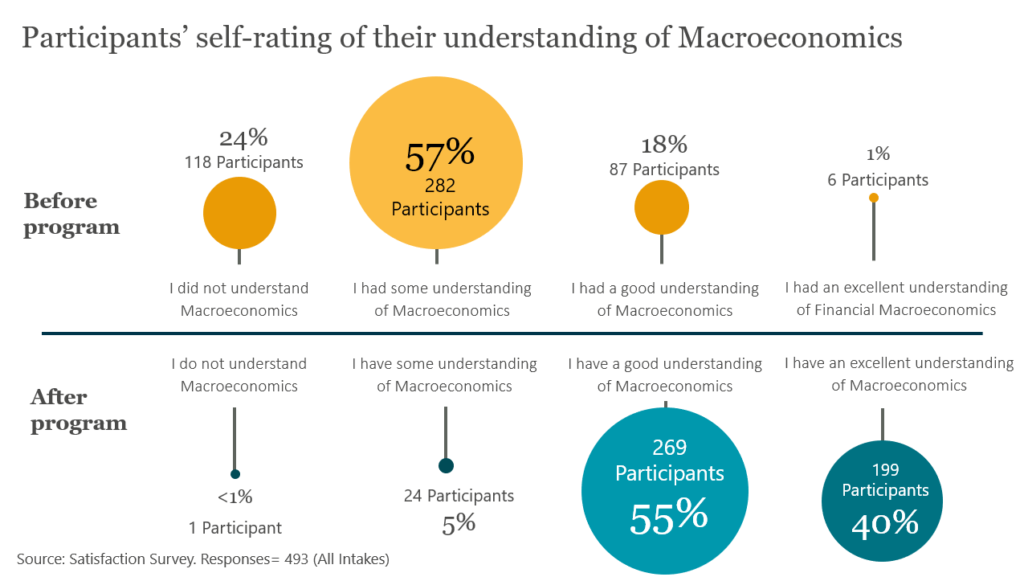In week 3 of our series on cognitive biases, we will be looking at the Dunning Kruger Effect and how it can change the way evaluators look at “pre” and “post” tests. The Dunning-Kriger effect shows a progression of one’s beliefs in their own abilities and demonstrates that someone may over or underestimate their abilities.
In 1999 Professors Dunning and Kruger published the paper “Unskilled and unaware of it: how difficulties in recognizing one’s own incompetence lead to inflated self-assessments.” In evaluations, the Dunning-Kruger effect shows up often when comparing pre and post-assessments, where post-test self-assessments have lower scores than pre-training self-assessments. Here is a diagram of the stages of a Dunning-Kruger stages when the participant assesses their own knowledge/skills.

Source: https://onlinepethealth.com/2019/12/12/the-dunning-kruger-effect/
The Dunning-Kruger effect begins with an over-confidence in performing a task, usually reflected in the “pre” tests. The Dunning-Kruger effect shows that comparing “pre” and “post” self-assessments produces weak evidence. So the pre-test is taken at the “Peak of Mt Stupid” and the post-test is taken when the participant realizes how little they know – at the bottom of the “Valley of Despair.”
At Khulisa, we prefer to conduct retrospective self-assessments to reduce the impact of the Dunning-Kruger effect. Here is an example of Khulisa’s retrospective self-assessment conducted after training is completed:

This data can then be presented as follows:

This is far more compelling evidence that the individual felt they have learnt as a result of the training course.
For more information on the Dunning-Kruger effect, read https://www.verywellmind.com/an-overview-of-the-dunning-kruger-effect-4160740